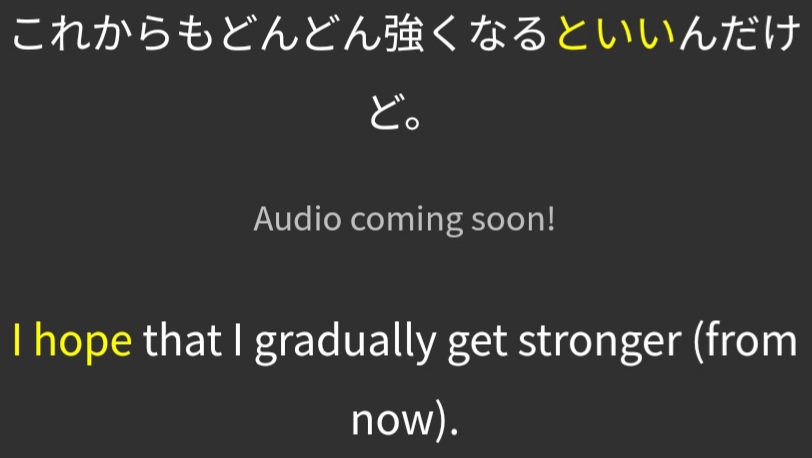I hope
I wish
you should
Structure
- Wishing for others/inside group :
Desired Outcome + といい + です + ね
Desired Outcome + といい + ね
- Wishing for oneself :
Desired Outcome + といい + なぁ
Desired Outcome + といい + ん/の + です + が
Desired Outcome + といい + ん/の + だ + けど
If といい means “to hope” the verb has to be non-controllable , or controllable but in potential form .
Controllable verb:
帰るといい - You should go back home
帰れるといいね - I hope you can come home.
Non-controllable verb:
雨が降らないといいね - I hope it won’t rain.
[Cannot be used to give advice]




